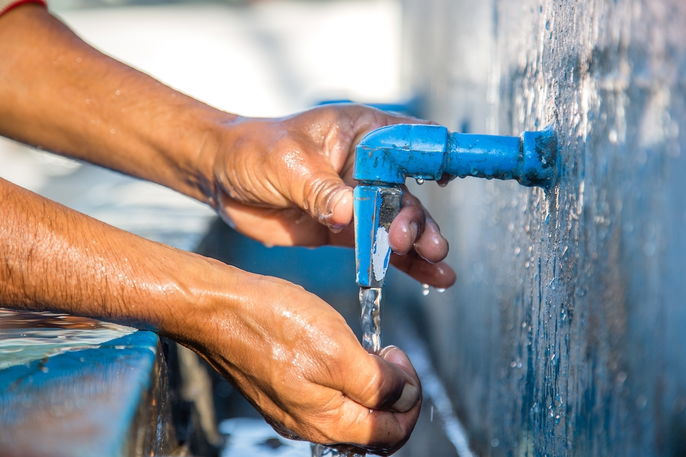Norovirus is a type of stomach virus that can lead to gastroenteritis symptoms like persistent diarrhea, nausea, vomiting, and a low-grade fever. It can affect both adults and children, and is transmitted through contaminated food or water, or through direct contact with infected people. It
This virus is highly infectious and resistant, and it can remain on surfaces with which infected people have come in contact with. This can lead to easy transmission of the virus to other people.
Treatment for gastroenteritis caused by norovirus is guided by a family physician, gastroenterologist or infectious disease specialist. It usually involves rest and fluids to relieve symptoms and prevent dehydration. Patients can take analgesics to reduce pain and fever, although more severe cases may require hospital admission for IV fluid and meds.

Common symptoms
The main symptoms of a norovirus infection include:
- Intense, liquid diarrhea without blood
- Nausea
- Vomiting
- Low-grade fever
- Chills
- Abdominal pain or cramping
- Headache
- Muscular pain
- General malaise
Symptoms normally emerge about 24 to 48 hours after the initial contact and can last for 1 to 2 days. It is still possible to transmit the virus to other people up to 2 days after symptoms disappear.
A norovirus infection can lead to serious symptoms, especially in children and older adults. They are more prone to dehydration and symptoms like dry skin and lips, rapid heart rate or a sudden decrease in blood pressure.
It is important to see a family doctor, gastroenterologist or infectious disease specialist if you notice symptoms, so that a diagnosis can be confirmed and treatment can be initiated.
Norovirus transmission
Norovirus is mainly transmitted through the fecal-oral route, in which a person becomes infected from eating contaminated food and water. Transmission can also occur indirectly (in which a person comes in contact with a contaminated surface), or directly (in which a person comes in contact with an infected person). Although it is more rare, norovirus can also be transmitted through vomit droplets suspended in the air.
It is possible for outbreaks to occur in closed environments, like boats, schools and hospitals, as human bodies promote the growth and development of this virus. Therefore, it is important to perform adequate hand hygiene and prevent closed environments with confirmed cases.
Confirming a diagnosis
Diagnosis of a norovirus infection is confirmed by a family doctor, gastroenterologist or infectious disease specialist through an assessment of the symptoms, healthy history, and social history (whether the patient has been in contact with other people). The doctor may also order a blood test to evaluate electrolyte levels.
Generally, tests are not needed to confirm an infection, however the doctor can order a culture test of a stool or vomit specimen to detect the presence of norovirus.
Treatment options
There is no specific treatment for gastroenteritis caused by norovirus. Doctors will generally recommend rest and plenty of fluids to prevent dehydration. Medications can also be prescribed to relieve pain.
Because there are several types of norovirus due to many mutations, it is not possible to develop a vaccine for this virus. However, the possibility of a periodic vaccine, like the flu shot, is being studied.
Prevention measures
To prevent a norovirus infection, you are advised to:
- Perform hand hygiene, with water and mild soap, for 20 seconds. You should especially wash your hands before and after using the bathroom, changing a diaper, breastfeeding, after touching an animal and handling food.
- Wash your fruits and vegetables well, with soap and water, then soak them in 1 L of water and 2 drops of bleach for about 30 minutes.
- Avoid consuming raw foods that are unwashed.
- Disinfect objects and surfaces that can potentially become infected, including bathroom toilets, floors, shower and sink, at least once per day.
- Clean faucets, light switches, and door handles with soapy water
- Avoid sharing towels, bed sheets and personal items.
- Wash the clothes of infected patients separately, and only after washing everyone else’s clothes
- Avoid contact with people with confirmed diagnoses
- Avoid touching surfaces and then touching your mouth, nose and eyes
- Avoid taking children to school, or avoid going to work, for at least 72 hours after symptoms have disappeared, to reduce transmission of the virus.
In addition, you should clean and disinfect surfaces that have been in contact with vomiting or diarrhea. Use a paper towel, disposable gloves and bleach to clean surfaces, applying the product and waiting at least 5 minutes before removing it with warm, soapy water.
After cleaning and disinfecting surfaces, be sure to wash your hands and forearms vigorously with soap and water to prevent infection and transmission of the virus.






























